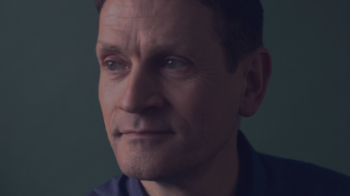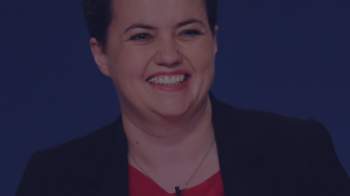Shazia Ginai on COVID, leadership & diversity
Posted on Thursday 18 March 2021 | IAB UK
In our latest Leadership Series session, CEO of Neuro-Insight Shazia Ginai took a deep-dive into how our brains are changing and what it means for brands
How has the past year of living in a pandemic rewired our brains? And what does that mean for how we process advertising? Our third Leadership Series speaker of 2021 was Shazia Ginai, CEO of Neuro-Insight - a neuroscience-based market research company that uses steady state topography (SST) to measure different regions of the brain and understand our cognitive functions.
In this session, Ginai discussed the neuroscience behind our changing behaviour, what it means for brands, how leadership is evolving as a result of the pandemic and the vital importance of inclusion and diversity in our current climate. Here’s what we learnt…
It’s all about the story
“Our brains love human interaction… we’re all on this earth looking for connection and meaning”, Ginai explained, but the past year has deprived us of much of that. Simultaneously, we’re arguably more exposed to advertising with screens competing for our attention. The result? Stories are all the more important. As Ginai said: “Our brains aren’t that interested in brands, what they’re really interested in is stories.” More than ever, we’re craving emotional connection and brands that can deliver a narrative that meets this need are seeing their advertising resonate with consumers.
Emotion is important because when we react emotionally to something, we are more likely to commit it to long-term memory. For brands, this means that advertising during the pandemic should “showcase personal relevance to further drive emotions into memory”. Ginai pointed to the raft of ads that draw on our current climate and use video calls as a topical premise - the successful ones weave a wider story of connection into the content to drive an emotional response in people.
Empathy & compassion are key
Having been appointed CEO of Neuro-Insight in June 2019, Ginai was only eight months into the job when the pandemic hit and says that there is “no formula to being a chief executive”. However, she believes that empathy and compassion are “the two pillars of leadership” and that the pandemic has brought these qualities to the fore. Expanding on this, she said: “As a leader, particularly when you’re going through a tough time like a pandemic, having the ability to show empathy and compassion is key, while also putting in place coping mechanisms so that you can protect yourself from feeling too drained.”
Discussing her experience of leading a team remotely, Ginai stressed the importance of open communication, flexibility and, also, fun. One example - the Neuro-Insight team held a daily planking competition in the first lockdown, with a rolling league table of top times. “It’s important that they see me as a human being”, she explained, adding that “it’s a total lie that all chief execs are superheroes”.
If you have a brain, you have a bias
Diversity and inclusion was a key part of Ginai’s talk. As a woman of colour that is also a CEO, she said that pre-pandemic, “any room I walked into, there were hardly any women and no women of colour”. Diversity is crucial to business success, she explained: “If you have a brain, you have a bias… If we all have a bias, what’s really important is to have enough people at the table to challenge your bias and for you to challenge theirs.” We all have a different life context and it’s by bringing those different contexts together that we can spark great creativity.
Further digging into the neurological aspect of diversity, Ginai said that we all have a subconscious judgement network that filters our ideas before we are even aware of them. By slowing this process down, we can unlock greater creativity and allow more ideas to emerge from our subconscious. This is most likely to happen at our calmest moments - whether that’s meditating, engaging in passive exercise or unwinding with a glass of wine. Rather than ‘getting in the zone’, ideas often come when we’re at our most ‘zen’.
Addressing leaders’ role in championing diversity, Ginai said: “If you’re silent then you’re complicit… when you’re in a position of leadership, you’re in a position of influence.” And if you don’t know what you say? “Show your alliance or ask people ‘how can I help?’”. As Ginai put it: “We need to start caring about [life] contexts outside of our own to drive change.”
Related content
Bruce Daisley: Creating a sense of ‘togetherness’ is critical
Learn moreMartin Siegert on climate change: “Advertising is really critical for our future”
Learn moreNigel Owens: The biggest challenge of my life was accepting myself
Learn moreRuth Davidson: “The most important resource in any organisation is people”
Learn more
Fast forward to 2030 with Futurescape
An in-depth exploration of the attitudes, innovations and media shifts that will shape the years ahead and redefine how we advertise by the turn of the decade



